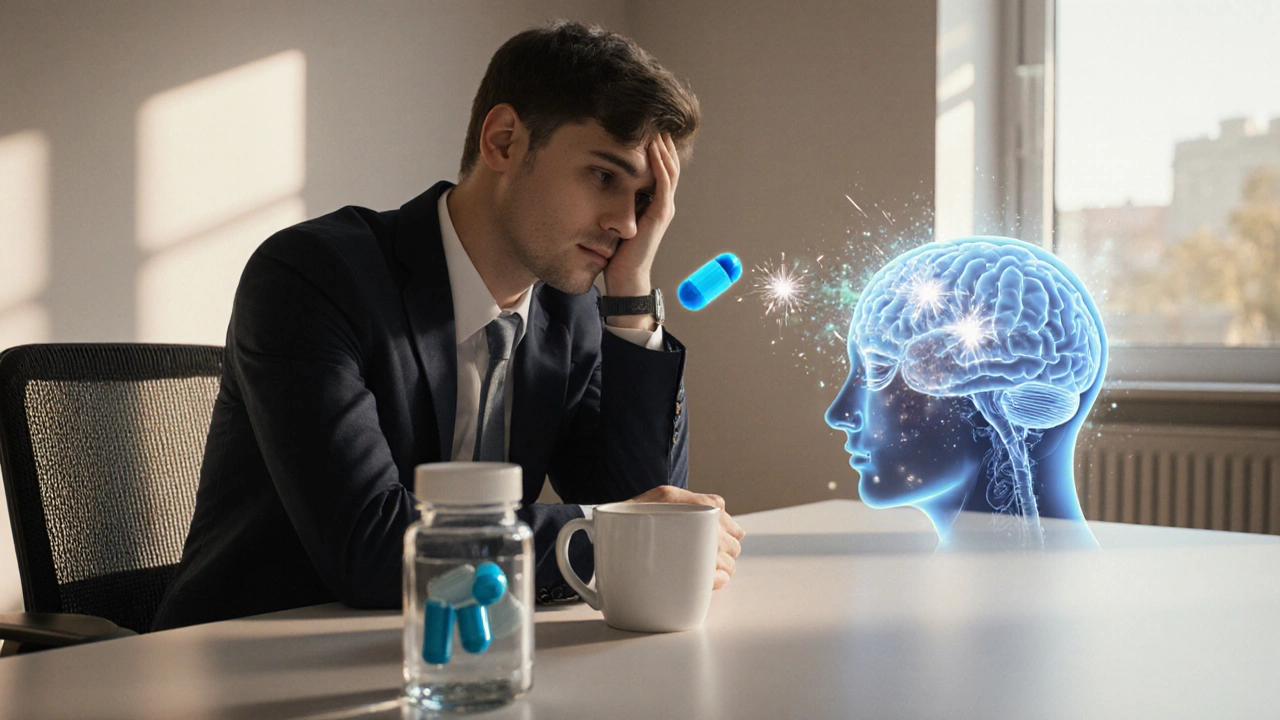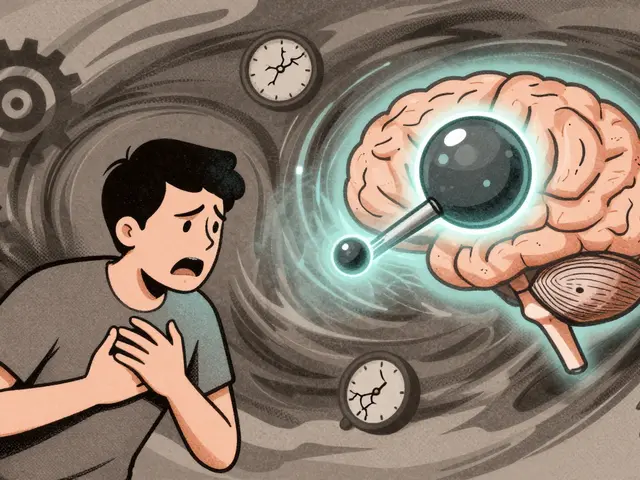Sulbutiamine: What It Is and Why It Matters
When you hear about Sulbutiamine, a synthetic derivative of vitamin B1 that easily crosses the blood‑brain barrier. Also known as Arcalion, it is commonly taken as a Sulbutiamine supplement to improve mental stamina and mood. In plain terms, Sulbutiamine is a form of Thiamine, the essential B‑vitamin that helps nerves fire properly and turns food into usable energy. By attaching two thiamine molecules together, manufacturers create a compound that reaches brain cells faster, which is why many label it a Nootropic, a class of substances meant to boost cognition, alertness, and motivation. People dealing with chronic Fatigue, low mood, or occasional brain fog often turn to Sulbutiamine because it promises a cleaner lift than caffeine and fewer jitters. The idea is simple: give the brain the same vitamin it needs, but in a form that gets there quicker, so you feel more focused, less sleepy, and a bit more upbeat without a heavy pharmaceutical prescription.
Key Points to Keep in Mind
Understanding how Sulbutiamine works helps you decide if it fits your routine. First, the compound enhances cognitive function by supporting the production of acetylcholine, a neurotransmitter involved in memory and learning. Second, because it raises thiamine levels in the brain, it can reduce perceived fatigue, especially in high‑stress situations where the body burns through energy stores quickly. Third, Sulbutiamine interacts with the brain's dopamine pathways, which explains why users sometimes notice a mild mood lift or a boost in motivation—effects that are also discussed in articles about stress, anxiety, and depression. Fourth, the supplement is generally safe at the typical dose of 200‑400 mg per day, but higher amounts may cause headaches, irritability, or mild skin reactions; always start low and watch how you feel. Fifth, combining Sulbutiamine with other nootropics like L‑theanine or caffeine can create a synergistic stack, but you should watch for overstimulation, especially if you already use stimulants for motion sickness or anxiety, topics covered in our other guides. Finally, remember that lifestyle factors—adequate sleep, balanced diet, and regular exercise—still play the biggest role in managing fatigue and mental sharpness; a pill is only a supplement, not a substitute for good habits. By keeping these points in mind, you can make an informed choice about whether Sulbutiamine belongs in your health toolbox, and you’ll also see why it shows up alongside discussions on smoking cessation, heart health, and even skin aging, because all those areas share a common thread: the body’s need for proper energy metabolism and nerve health.
Below you’ll find a curated collection of articles that dive deeper into related topics—whether you’re curious about how Sulbutiamine stacks with other supplements, looking for natural ways to combat fatigue, or need practical tips for managing stress, anxiety, or sleep‑related issues. Each piece links back to the core ideas of energy, cognition, and overall well‑being, giving you a full picture of how a single compound can fit into a broader health strategy.

- Oct 10, 2025
- Posted by Cillian Osterfield
Arcalion (Sulbutiamine) vs Top Nootropic Alternatives - Full Comparison
A side‑by‑side look at Arcalion (Sulbutiamine) versus top nootropic alternatives, covering mechanisms, benefits, dosage, and how to pick the right supplement.
Categories
- Health and Wellness (72)
- Medications (72)
- Health and Medicine (28)
- Pharmacy Services (12)
- Mental Health (9)
- Health and Career (2)
- Medical Research (2)
- Business and Finance (2)
- Health Information (2)
Latest Posts
©2026 heydoctor.su. All rights reserved





